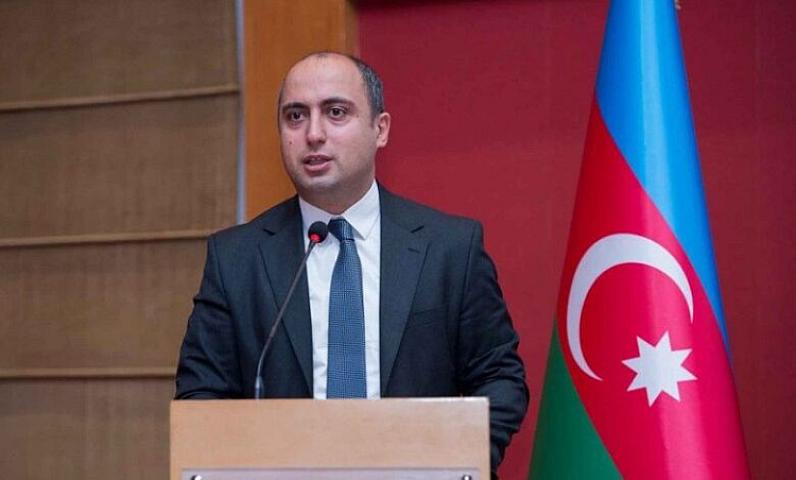One of the topics being discussed these days is teachers working at school under a set work regime like other professionals – that is, working according to the 8-hour workday principle accepted in our country. For those who do not know, I would like to note that currently, teachers in general education institutions in our country operate with two main statuses: staff and hourly wage.
In fact, although these two mechanisms are legally different, their actual mode of operation is almost identical. That is, whether a teacher works on staff or hourly wage, they are only at school during lesson hours, deliver their lessons, and then leave. Unfortunately, today we often measure teacher labor simply by the 45-minute lesson unit spent in the classroom. However, at least two additional 45-minute periods should be allocated for preparation and evaluation of each 45-minute lesson.
It is true that there are certain differences in salary calculation here, but in terms of work organization and time spent on the pedagogical process, there is practically no difference. Naturally, if this approach is implemented, the first to object will be the teachers themselves. After all, instead of teaching 3 hours a day and leaving, it will be required to stay at school for 8 hours a day. This is not at all encouraging.
It is interesting, if this takes place, what can it bring to our education? Where does this necessity arise from?
The first and main impact will undoubtedly be on the quality of education. If this system is properly implemented, it can be a very important step towards improving education quality, positively changing student behaviors, and increasing teacher professionalism.
Let’s imagine for a moment that teachers spend 8 hours a day at school. If they have an average of 18 hours of lessons per week (which means 72 hours for 24 working days), then in a month, according to 24 working days, they will spend a total of 192 hours at school. Out of this, only 72 hours are lessons, while the remaining 120 hours will be dedicated to in-school pedagogical activities, methodological work, and educational processes.
Yes, the most important thing is how to fill these 120 hours. If this time is properly programmed with internal methodological development plans, trainings, inter-teacher lesson observations, work on projects, continuous professional development, and in-school research activities, it will lead to a systematic renewal of teachers’ knowledge and skills.
Currently, the activity of methodological offices, unfortunately, is mostly limited to official documentation. Whereas methodological associations should frequently conduct lesson observations, hold discussions, and organize internal trainings on new pedagogical trends (differentiated teaching, formative assessment, project-based learning, etc.). However, these activities often do not take place because it is impossible to create a pedagogical community with a teacher who does not come to school saying "I have no lessons."
Today, extracurricular activities and clubs envisaged in teaching plans are often formal in nature or sometimes not conducted at all. I think that with the new system, these activities can gain real content. While at school, teachers can manage student clubs, lead social projects, organize extra lessons and mentoring meetings within these extracurricular hours. This would provide additional income opportunities for teachers and also ensure productive use of funds allocated from the state budget.
I am confident that the impact on student behavior will unambiguously change for the better. Teachers spending more time at school will increase opportunities to build emotional and social connections with students. Currently, this burden mainly falls on class supervisors. However, for the formation of a child's behavior and relationships in the school environment, it is necessary for all teachers to be involved in the educational process. This approach will strengthen students' attachment to school and create real opportunities to work individually with lagging students, conduct educational talks, and organize club activities.
One of the most important results of this system could also be freeing teachers from the need for parallel employment (tutoring). If salaries are optimized, teachers will no longer need to immediately leave for "other earnings" after finishing their lessons.
Currently, some teachers are engaged only formally in parallel preparation while "maintaining their name" at school, whereas others carry the entire workload. The new approach can restore the principle of fairness in work distribution.
In short, if a teacher is at school for 8 hours, time will also be allocated for official documentation, assessment, planning, and reporting. Thus, the most frequent complaint of teachers about "lack of time" will be partially removed.
This topic, which has become an object of discussion for us today, is actually what should exist. For this purpose, I would like to introduce you to several examples from international experience that I brought:
- In Finland, teachers stay after lessons at school to engage in lesson analysis, project discussions, and individual student support. There, the principle "teacher as researcher" is fundamental.
- In Singapore, each teacher dedicates 5-6 hours weekly only to professional learning meetings.
- In South Korea, teachers are at school under an 8-hour work regime, but only 40% of this time is for lessons, the rest is spent on pedagogical planning, research, and assessment work.
- In Estonia, teachers’ daily presence at school facilitates both digital management and student monitoring.
Seeing and knowing these examples, every teacher’s first question will be: what about the teacher’s salary there? The answer undoubtedly justifies the teacher.
I think this is a delayed event in our education system, but if the idea is developed, improved, and implemented, shortly we will all get used to it and see development in our education. At least it is clear to everyone that private schools currently operating in our country work precisely on these principles.
If the goal of this system is not to force the teacher but to turn him into the intellectual and social center of the school, I applaud and support it. The more time a teacher spends at school, the more their pedagogical reflection, creativity, and influence on the educational environment will increase. I want to emphasize again that if the 8-hour work regime is accompanied by fair salary, proper planning, and cultural changes, this will not only enhance the prestige of the teaching profession but also improve the overall quality of education in Azerbaijan.
Shamil Sadig,
education technologist, associate professor







